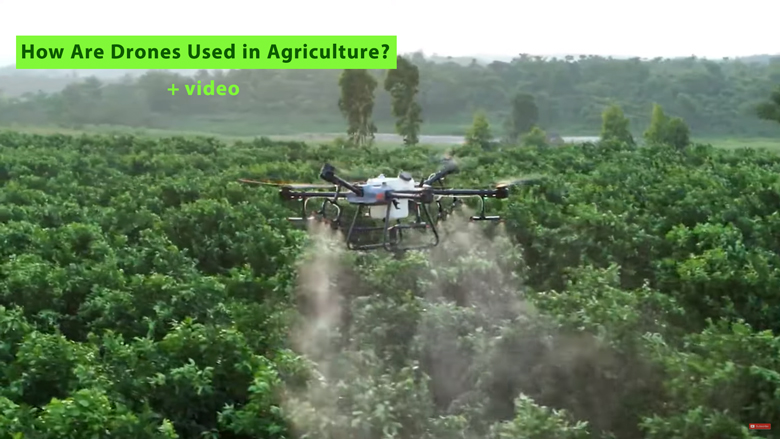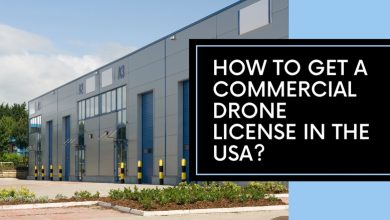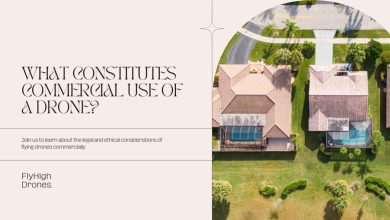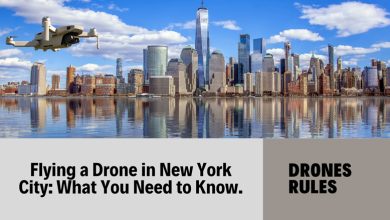How Are Drones Used in Agriculture?

Drones are rapidly advancing in modern agriculture, revolutionizing the way we grow plants. The question now arises: How are drones used in the agriculture industry, and what are their benefits?
This essay will discuss the multifaceted applications of drones in agriculture, exploring their role in boosting productivity, ensuring crop health, and enhancing resource management.
What are the benefits & applications of drones in agriculture?
These drones have become indispensable tools for farmers and agribusiness owners, offering a wide array of benefits and applications that are changing the way we grow and manage crops.
Some of the most important advantages of drone technology in agriculture are listed below:
1. Precision crop monitoring & management
One of the most fundamental applications of drones in agriculture is the ability to monitor and manage crops with unparalleled precision.
These drones equipped with high-resolution cameras provide farmers with real-time insights into the health and conditions of their crops.
Instead of labor-intensive visual inspections, farmers can now get an aerial view of their fields, allowing them to identify issues like pest infestations, nutrient deficiencies, or irrigation problems promptly.
With this data at their fingertips, farmers can take immediate action, reducing the risk of crop loss and optimizing yields.
UAVs in farming also enable farmers to conduct regular scans throughout the growing season, allowing for ongoing monitoring and the ability to make data-driven decisions that improve overall crop health.
2. Drone-based pest control in agriculture
Drones are instrumental in pest control and precision spraying, significantly reducing the need for manual labor and minimizing chemical usage.
Traditional methods of pest control often involve broad-spectrum chemical treatments that can harm non-target areas and negatively impact the environment.
Drones, on the other hand, can precisely target affected areas, minimizing the ecological footprint and reducing the overall cost of pest management.
These aerial devices can carry specialized spraying equipment that applies the right amount of pesticide or herbicide only where needed.
This targeted approach not only saves money but also reduces the risk of pesticide runoff, safeguarding nearby crops and ecosystems.
The efficiency and accuracy of drone-based spraying operations are a win-win for both farmers and the environment.
3. Drones for soil analysis
Maintaining healthy soil is the cornerstone of successful farming. Drones equipped with advanced sensors can provide invaluable data on soil conditions, moisture levels, and nutrient content.
This information helps farmers make informed decisions about irrigation, fertilization, and land management. Drones allow for real-time mapping of soil properties, enabling farmers to apply resources more efficiently.
Addressing soil variations within a field can reduce water wastage and minimize over-fertilization, saving both money and valuable resources. Drone technology in agriculture enhances sustainability and helps improve long-term soil health.
4. Enhancing Farm Safety & security
Safety is paramount in agriculture, and drones play a crucial role in ensuring the well-being of both farm workers and livestock.
Drones can be used to inspect hard-to-reach areas of a farm, reducing the need for manual labor in dangerous situations. For example, they can inspect equipment on tall silos or survey terrain that may be challenging to access.
Moreover, drones are valuable tools for farm security. They can monitor the perimeters of farms and alert owners to any unusual activity, helping protect valuable assets and reduce the risk of theft or vandalism.
In remote areas, drones can also assist in locating and tracking livestock, ensuring their well-being, and preventing losses due to illness or injury.
read more:
How to Make Money with Drones 2023?
Can You Fly a Drone Over Private Property?
Can You Bring a Drone on a Cruise?
What are the water-resistant DJI drones?
What is the future of drones in farming?
The future of drones in agriculture is poised to boost, quite literally, with UAVs playing an increasingly vital role. These flying machines are set to revolutionize farming practices even further in the coming years.
Here is a glimpse into what the future of UAVs in Farming holds:
Autonomous precision agriculture with drones
As drone technology in farming continues to advance, we can expect a transition towards more autonomous and intelligent systems. Drones will not only collect data but also analyze it on the go.
They will be equipped with artificial intelligence (AI) algorithms that can make real-time decisions, such as identifying and treating crop diseases, optimizing irrigation, or detecting pests.
This shift towards autonomous precision farming will boost efficiency and further reduce the reliance on manual labor.
Swarm intelligence
Imagine a flock of drones working together in perfect harmony, like a swarm of birds. This concept, known as swarm intelligence, is gaining traction in agriculture. Multiple drones will collaborate seamlessly to cover larger areas in less time.
Each drone will communicate with the others, sharing data and coordinating tasks. This approach will make large-scale farming operations more manageable and cost-effective.
Improved battery Life & energy efficiency
One significant limitation of drones is their battery life.
However, as technology advances, we can anticipate longer flight times and improved energy efficiency.
Drones with extended battery life will be able to cover larger areas without frequent recharging, making them more practical for extensive farming operations.
Data integration with other technologies
The future of drones in farming is not limited to these aerial machines alone. We can expect greater integration with other advanced technologies, such as Internet of Things (IoT) devices, satellite systems, and data analytics platforms.
Drones will become a part of a broader ecosystem that provides farmers with comprehensive insights into their operations. This synergy will result in more informed decision-making and streamlined farming practices.
Sustainability and environmental considerations
The future of agriculture is intrinsically linked to sustainability and environmental responsibility. Agriculture drone services will play a crucial role in helping farmers reduce the environmental impact of their operations.
By optimizing resource usage, minimizing chemical applications, and monitoring land and water health, drones will contribute to sustainable farming practices.
This will not only benefit farmers but also address the broader concerns of climate change and resource conservation.
Let’s recap
In conclusion, the integration of drones into agriculture represents a pivotal moment in the industry’s history.
How are drones used in agriculture? With benefits spanning from precision crop management and pest control to soil analysis and safety enhancements, drones have already demonstrated their transformative power.
The question remains: how do you envision drones shaping the future of agriculture? Your insights and thoughts are invaluable. Please share your perspective in the comments below.




